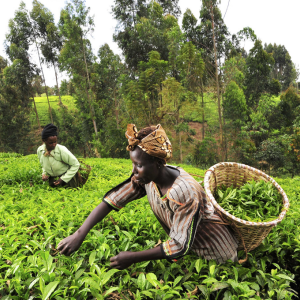
In this commentary, Thomas Hertel of Purdue University argues that typically-used metrics of food security that are based solely on food production and food prices are incomplete, misleading or in some cases, just wrong.
He says that the impact of climate change and agricultural prices on household incomes, and the subsequent implications of household income on a family’s nutritional outcomes and general well-being, are in many cases much more important for measuring or inferring food security than just food prices or total food consumption alone. Hertel argues that a more nuanced and holistic view of the complexities of a household’s income (both quantity and source) and outgoings is needed to properly assess local food security.
The positive impact of food price increases on the income of agriculture-dependent households are often ignored in conventional studies, in favour of the more simplistic view that as all households consume food, price increases will contribute to increased outgoings and will therefore cause harm. The author cites a number of examples of situations in which climate impacts – such as drought – reduced agricultural production, leading to an increase in food prices, and, consequently, to higher wages for poor rural farmers. On a larger and more long-term scale, it has been shown that on average, higher food prices are associated with national poverty reductions, owing to rural farm-workers making up a high proportion of people living in poverty, particularly in developing countries. Moreover, extreme weather events, such as flooding, are shown in some cases to be linked to higher wages, where they generate the need for rural labour. Hertel concludes that assessments of national food security and poverty need to take account of the sources of household incomes, with a particular focus on the poorest households, their nutritional status, where they live and how they earn their living.
Abstract
Using food prices to assess climate change impacts on food security is misleading. Differential impacts on income require a broader measure of household well-being, such as changes in absolute poverty.
Citation
Hertel, T.W. (2016) Food security under climate change. Nature Climate Change, 6, 10-13
Read the original commentary here, see this blog post about the article by CCAFS, and see also this ScienceDaily article.
You can find related resources in the research Library categories on Economic and Political Theories, Food Security and Nutrition, Development/Poverty and Climate Change Impacts and Adaptation, and in the keywords categories on: Food and Poverty







Post a new comment »